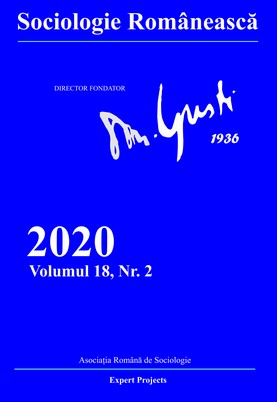ASPECTE ALE RELAȚIEI MAESTRU - DISCIPOL: DIMITRIE GUSTI ȘI MIRCEA VULCĂNESCU
ASPECTS OF THE MASTER-DISCIPLE RELATIONSHIP: DIMITRIE GUSTI AND MIRCEA VULCĂNESCU
Author(s): Nicu GAVRILUȚĂSubject(s): Social Philosophy, Sociology of Culture, Phenomenology
Published by: Editura Eikon
Keywords: Discipleship; phenomenology; religion; magic; cultural fact; mentality;
Summary/Abstract: The present text analyzes some cultural aspects of the master-disciple relationship between Dimitrie Gusti and Mircea Vulcănescu. Insist especially on the topicality of Gustian sociology while taking Mircea Vulcănescu’s receiver. Mircea Vulcănescu’s discipleship starts with the coordination of the bachelor’s degree in sociology by Professor Dimitrie Gusti, and then continues with the writing of other studies. Participation in sociological campaigns field, seminars and sociology conferences will follow afterwards. The present study also has the interpretation that the disciple Mircea Vulcănescu gives to the sociological system of the declared teacher Dimitrie Gusti. The precise references are to the Aristotelian substrate of the relation between possibility and actuality, reflected by Dimitrie Gusti in the relation between cadres and manifestations; to the social will understood as an original expression of the voluntarism of Jean-Jacques Rousseau; to the archetypal character of the four Gustavian cadres; to Gusti’s sociological system defined as “system of social philosophy”. In this sense, Dimitrie Gusti’s system does not exclude science. On the contrary, it includes it in the sense of “sufficient reason” of all those existing in social life. Finally, I illustrated the importance of the social phenomenology practiced by Mircea Vulcănescu in the field sociological campaigns coordinated by Dimitrie Gusti with two classic examples and one current one. The first two refer to the analysis of a magico religious phenomenon (the enchantment) and to the subtleties of the speculative vocation of the Romanian reflected linguistically. The present example is an attempt, partially original, to interpret in the spirit of the phenomenology proposed by Vulcănescu certain forms of popular culture that illustrate the non-canonical power of evil in Romanian history. At the limit, these fantasies of the efficacy of evil could more deeply explain the suspicion and distrust of Romanians.
Journal: Sociologie Românească
- Issue Year: 18/2020
- Issue No: 2
- Page Range: 127-135
- Page Count: 9
- Language: Romanian

